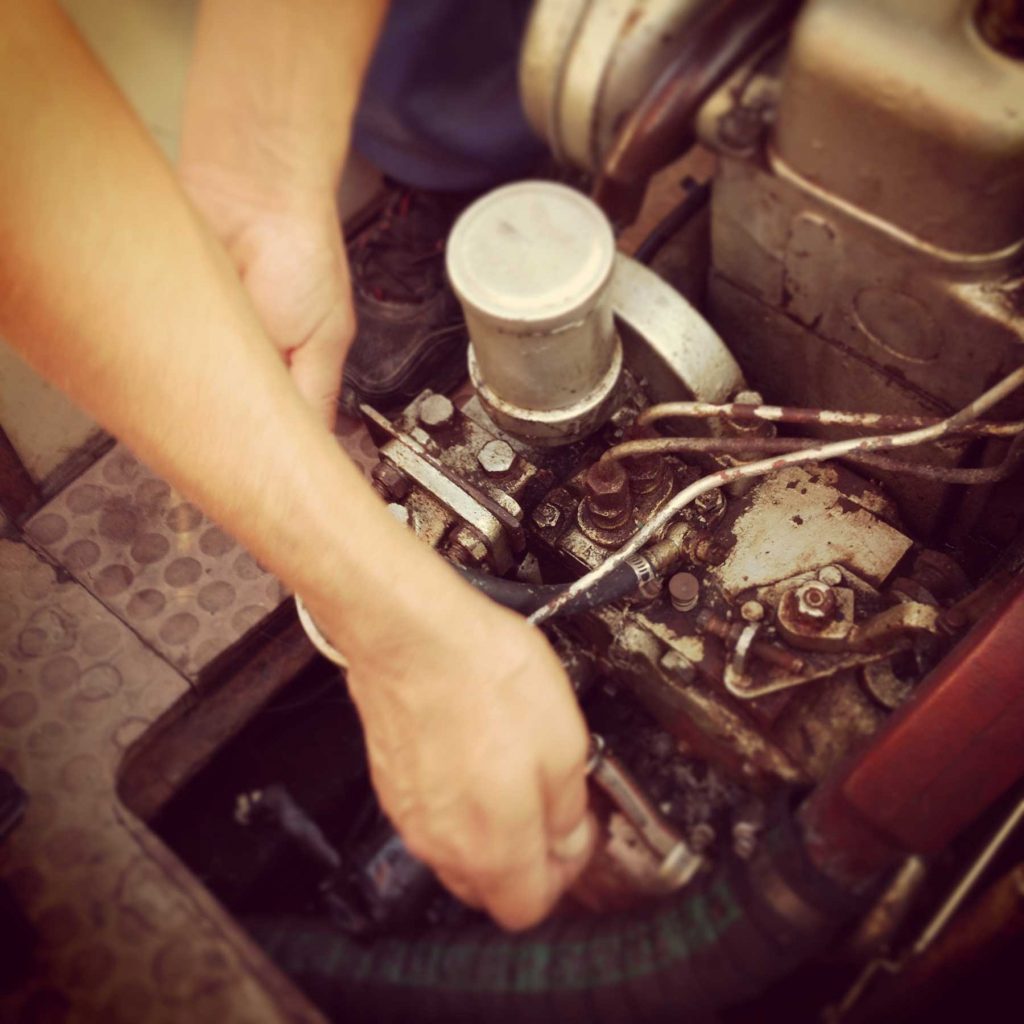Diesel engines are efficient, long-lasting, and the engine of choice for big vehicles and boats. If you’re a boat owner, you’ve undoubtedly encountered diesel engine fuel issues. It’s critical to discover the warning signs as soon as possible if you suspect an issue.
How to Find Out If Your Boat’s Diesel Engine Needs Fixing
Here are some of the most frequent diesel engine fuel problems you may come across:

Deposits in the Combustion Chamber
Because conventional gasoline burns more cleanly than diesel, deposit buildups are more common in diesel. When the chamber has been restricted, less air is available for combustion, reducing the total usable volume and making it more difficult to get optimal burn when required.
Difficulty Starting in Cold Weather
The molecules of paraffin wax in diesel fuel bind together to form “crystals” that grow bigger as the outside temperature drops. In the winter, diesel engines are difficult to start because of this. The addition of a higher cetane rating diesel fuel or certain gasoline treatments that boost the cetane number can assist.
Diesel Fuel Contamination
It’s conceivable that you’ll fill your boat with impure diesel fuel. It might cause blocked fuel pumps and erratic performance from the fuel pump when this happens.
Here are the symptoms and causes of bad diesel fuel:
- Metal particles, as well as water introduced during the refining procedure, might cause fuel contamination.
- The shelf life of diesel fuel is limited. The fuel that has expired or “gone bad” is the one that is outside of its expiration date.
- Diesel fuel that contains a high amount of sulphur typically lasts no more than a year. The dark and hazy appearance of bad diesel petrol is unmistakable.
Black Diesel Engine Smoke
If your boat’s engine is belching black smoke, it’s a sign that the fuel isn’t being burned entirely. Diesel engines usually produce water and CO2 as byproducts of their operation.
Because of restricted airflow, this issue is frequently caused by turbocharger lag (typically in older boats), issues with fuel injectors or valve clearances. In addition, oil and fuel residues can generate black smoke.
Black Diesel Fuel Problems
The term “black diesel” refers to the use of used motor oil as a fuel for diesel engines. This isn’t advised since deacidifying used motor oil necessitates time, skill, equipment, and perseverance.
Though some experts claim they can repair their marine engines this way, doing so has the potential to damage fuel lines and injectors, as well as cause engine damage.
Additional Signs of a Diesel Engine Problem
Other typical diesel engine issues to keep an eye out for include:
Oil oxidation: Marine diesel engines that are not used for a lengthy period of time may succumb to air intruding into the oil, resulting in engine failure. It’s essential to change the oil before using a boat that has been unused for six months or more at most temperatures.
Hard starting: If a boat cranks for longer than expected as you start the engine, check the compression and fuel delivery components.
Loud noise during operation: Diesel engines make more noise than gasoline engines. However, extra-loud engine knocking might be a sign of malfunction in your boat’s fuel injectors.
Diesel engine fuel problems can be costly and inconvenient. If you’re experiencing any of the issues we’ve outlined in this post, don’t hesitate to reach out for help. The team at Diesel Mechanics Australia has years of experience repairing diesel engines and we’re here to help you get back on the water as soon as possible. Don’t let a faulty fuel system keep you from enjoying your boat! Have you had to deal with a similar issue in the past? Let us know how you handled it in the comments below.

